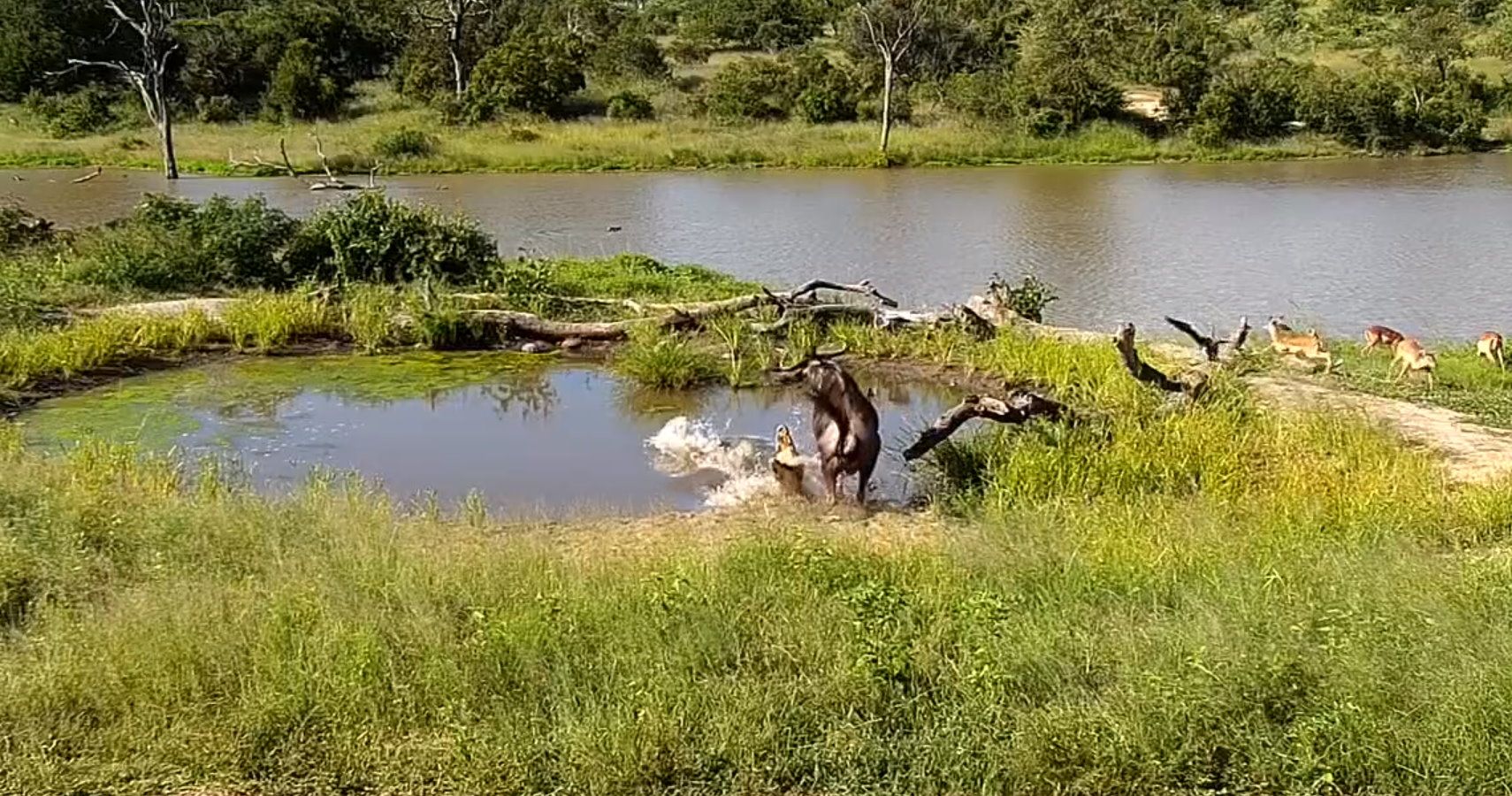ourWildEarth is here to remind you that nature is metal AF with their latest clip of a crocodile ambushing a wildebeest.
We discovered ourWildEarth, the new Twitch channel from Wild Earth, last month with several live-streams of the African savannah. They got started late last year and have already acquired over 15,000 followers into live-streamed nature docs.
You'll learn quite a bit about nature if you start watching ourWildEarth, including far more about elephant genitals that you ever wanted to know. But when the South African hosts aren't there and you're just watching webcams set up around the Djuma Private Game Reserve, you get to see some pretty amazing things.
For example, this clip below featuring a crocodile and a wildebeest. The wildebeest is just there for a sip of water, this being the rainy season and all, but the crocodile has other plans. You can’t even see the giant lizard as it slowly creeps up to the wildebeest from underwater. Not a single ripple gives away the crocodile’s impending ambush, and the wildebeest is totally unaware of its impending doom.
But when the crocodile strikes, it misses. The wildebeest is able to dodge at the last second, bounding off a fallen log before tearing off into the distance screaming. You can see the crocodile tries to correct but accidentally bites the log instead of the wildebeest. A herd of antelope also run away, although that seems hardly necessary.
Twitch chatters wrote "woah" and "holy !@$%" soon after the croc's failed attempt at dinner. Maybe next time, little buddy.
Although most of ourWildEarth's coverage is done via webcams, regular live-streams of expeditions happen monthly as Wild Earth's trained guides stomp off into the savannah in search of lions and elephants. Since this is a game reserve, they often find them.
If you're into nature in any capacity, check out ourWildEarth over on Twitch.
Source: ourWildEarth on Twitch

